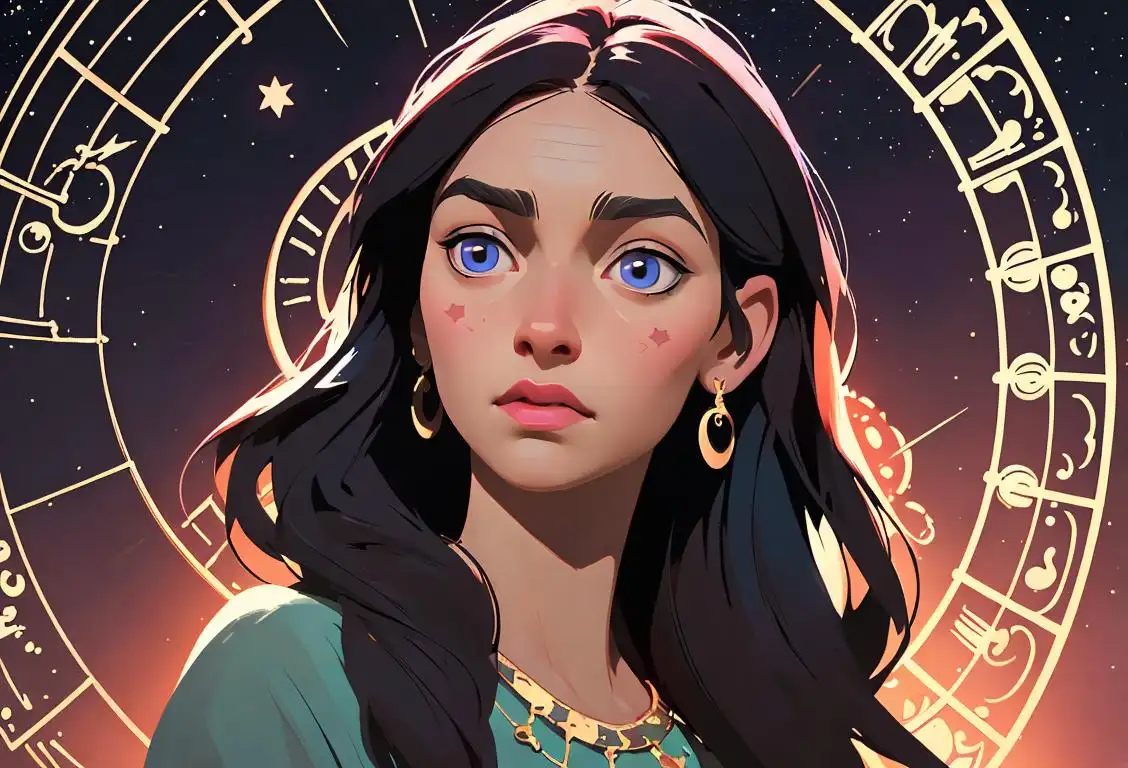National Astrology Day

Welcome to National Astrology Day, where the stars align to bring you cosmic fun and celestial wisdom! Prepare to have your mind expanded and your horizons broadened as we dive deep into the mystical world of astrology.
When is Astrology Day?
It's national astrology day on the 29th April.
Unveiling the Astrological Secrets
On this auspicious day, astrologers and astrology enthusiasts from around the world come together to celebrate the ancient art of reading the stars. Astrology has been around for thousands of years, with its origins dating back to ancient civilizations such as the Babylonians and Egyptians.
Throughout history, people have looked to the heavens in search of answers, guidance, and a little entertainment. Astrology provides individuals with the opportunity to gain insights into their personalities, relationships, and even their future.
Whether you're a skeptic or a true-believer, National Astrology Day offers a chance to explore this captivating realm. Learn about the different zodiac signs, discover your rising sign or explore the intricacies of your birth chart. Who knows, you might uncover hidden talents, uncover powerful connections with loved ones, or perhaps just find a great conversation starter!
The Role of Astrology in Online Communities
As social media and online communities continue to grow, astrology has found a new home on the internet. People now have access to astrology apps, online horoscopes, and interactive astrology forums where they can discuss their passion for the cosmic arts.
On National Astrology Day, these online communities come alive with vibrant discussions and debates about the latest astrological predictions. From deciding if Mercury retrograde truly affects our lives to analyzing the compatibility of different zodiac signs, the internet has become a hub for astrology enthusiasts to connect and share their insights.
Did You Know?
Did you know that astrology can be found in many surprising places? For example, did you know that some people use astrology to help them plan their meals? They believe that certain foods align with specific zodiac signs and can enhance their well-being. So the next time you're indulging in a delicious dish, why not consider its astrological significance?
History behind the term 'Astrology'
4000 BCE
Ancient Roots
Astrology has its roots in ancient civilizations, with the earliest recorded evidence appearing in Mesopotamia around 4000 BCE. In this era, people relied on observations of celestial objects and their movements to make predictions about earthly events. The belief in the influence of celestial bodies on human affairs laid the foundation for the development of astrology.
2000 BCE
Babylonian Contributions
The Babylonians played a significant role in advancing astrology and formalizing its practices. They established a system where astrologers interpreted the positions and movements of the planets, sun, and moon to make predictions about events such as natural disasters, political changes, and personal fortunes. Their celestial observations and astrological calculations were recorded on clay tablets known as 'Astrological Diaries' and 'Enuma Anu Enlil,' providing valuable insights into the ancient astrological practices.
5th Century BCE
Greek Influence
During the Hellenistic period, astrology gained popularity in Greece, blending the Babylonian and Egyptian astrological traditions. Greek philosophers, such as Plato and Aristotle, had an ambivalent stance towards astrology, yet it thrived and became an integral part of Greek society. The prominent astrologer Claudius Ptolemy's work 'Tetrabiblos,' written in the 2nd century CE, provided a comprehensive framework for astrology and greatly influenced its future development.
8th Century CE
Arab Translations and Expansion
Astrology ventured into new territories through the translation efforts of Arab scholars. In the 8th century CE, Persian and Arab astrologers translated Greek and Babylonian astrological texts, thus preserving and expanding the knowledge. Arab scholars played a crucial role in transmitting astrological knowledge to Europe during the Middle Ages, where it would later flourish.
11th Century CE
Medieval Astrology
Astrology flourished during the Middle Ages, particularly in Islamic and Christian societies. Astrologers were revered as intellectuals and advisers to kings and nobles. The Arab translations, along with the incorporation of Arabic and Persian astrological techniques, contributed to the development of medieval astrology. Astrological texts, such as Almanacs and horoscopes, gained popularity and circulated widely, shaping the lives and beliefs of people across Europe.
17th Century CE
Scientific Scrutiny
In the 17th century, the Age of Enlightenment and the rise of scientific inquiry challenged the validity of astrology. Intellectuals like Galileo Galilei and Isaac Newton criticized astrology, considering it a pseudoscience without empirical evidence. Despite the criticism, astrology persisted among individuals seeking personal guidance. Astrologers adapted by creating psychological interpretations to support their practice.
20th Century CE
Modern Astrology
In the 20th century, astrology experienced a revival and gained popular interest. New astrological schools emerged, including psychological astrology and sun sign astrology, which introduced simplified horoscopes based on the twelve zodiac signs. Astrology became more accessible through newspapers, magazines, and later, websites, allowing people to explore their astrological profiles and predictions easily.
Did you know?
Did you know that some people use astrology to help them plan their meals? They believe that certain foods align with specific zodiac signs and can enhance their well-being.Tagged
romance nsfw funFirst identified
29th April 2018Most mentioned on
29th April 2018Total mentions
29Other days
Aldub Day
Weatherpersons Day
Love Pizza Day
Kisses Day
Awareness Day
One Day
Children Day
Happiness Day
Opposite Day
Ojd Day









